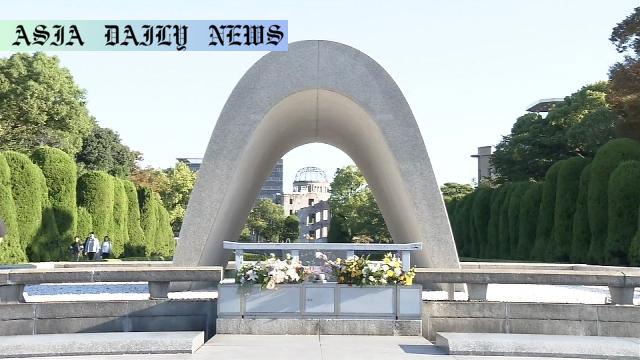Nuclear Treaty: Japan considers sending cross-party representation to UN nuclear weapons ban treaty conference in March.

Japan’s Decision to Explore Cross-Party Engagement
Japan’s government and ruling coalition are considering a significant step forward by sending members of the Diet to the United Nations headquarters for the Third Meeting of States Parties to the Treaty on the Prohibition of Nuclear Weapons. The conference, scheduled for March in New York, will see deliberations on global nuclear disarmament. Although Japan has yet to ratify the treaty or participate in such conferences as an observer, the proposition to send lawmakers reflects a nuanced shift in Japan’s traditionally cautious approach to nuclear weapons treaties.
The Nuclear Treaty and Japan’s Sensitive Position
The Treaty on the Prohibition of Nuclear Weapons, which outright bans the use and possession of nuclear weapons, has garnered support from 73 nations globally. However, Japan’s reluctance to endorse the treaty stems from its unique security concerns. Heavily reliant on the United States for defense, Japan argues that completely repudiating nuclear alliances might weaken its strategic position. While Japan aligns with denuclearization ideals due to its historical context as the only country to suffer atomic bombings, the government is attempting to find a balanced response between international peace advocacy and national security interests.
Cross-Party Delegations: A Pragmatic Approach?
The government’s proposal considers assembling a delegation inclusive of Liberal Democratic Party members, Komeito representatives, and possibly opposition party members. By opting for a cross-party delegation rather than official observer status, Japan aims to maintain neutrality while gathering firsthand insights into global discussions surrounding nuclear disarmament. This strategy, according to insiders, can serve as preparatory groundwork for future policymaking efforts related to nuclear treaties.
Reactions from Advocacy Groups and Experts
Despite this development, prominent advocacy groups such as Nihon Hidankyo have expressed disappointment over Japan’s decision not to participate directly as an observer. Mimaki Toshiyuki, co-chair of the organization and a Nobel Peace Prize laureate, voiced frustration at what he perceives as a lack of a clear stance by the Japanese government. As Japan approaches the 80th anniversary of the Hiroshima and Nagasaki bombings, critics argue that the nation should lead global efforts on disarmament through decisive actions rather than passive involvement.
Global Perception of Japan’s Role
Analysts worldwide recognize Japan’s unique position in nuclear disarmament discourse. As a nation that experienced the catastrophic aftermath of nuclear warfare, Japan possesses unparalleled moral authority. However, this moral ascendancy is often undercut by its reliance on the U.S. nuclear umbrella for defense. Examples from other U.S. allied states that attended prior conferences without ratification have cooled expectations of Japan’s participation making immediate impacts, further complicating Tokyo’s motivations to engage directly with the treaty process.
Looking Ahead
The upcoming UN conference could provide a tipping point for Japan’s engagement with nuclear disarmament treaties. By attending without full observer status, Japan sends a message of cautious interest and deliberation. This exploration may pave the way for Japan to re-evaluate its nuclear stance under changing global security dynamics. Moving forward, public sentiment, advocacy efforts, and geopolitical realities will likely shape Japan’s next steps on this crucial issue.
Commentary
Japan’s Balancing Act
Japan’s hesitation in fully endorsing the Treaty on the Prohibition of Nuclear Weapons is undoubtedly a challenging balancing act. On one hand, the country’s history as the sole victim of nuclear warfare lends it the moral authority to champion disarmament globally. Yet on the other, its reliance on the protective umbrella of U.S. nuclear capabilities means taking an active role risks exposing Japan to vulnerabilities. This careful navigation between principle and pragmatism reflects the complexities of today’s geopolitical landscape.
A Cross-Party Approach: The Right First Step?
The government’s suggestion of a cross-party delegation is a bold yet calculated move. By remaining noncommittal as an observer while still attending the discussions, Japan retains its flexibility to engage or disengage, based on outcomes. This could be a clever way to show interest without fully diving into a high-profile commitment. However, critics might argue that this tepid approach does little to assert Japan’s leadership in nuclear disarmament initiatives. True leadership requires risk, and attending as an observer might have sent a stronger message.
Global Implications
How Japan maneuvers within the framework of nuclear agreements will be closely watched worldwide. As nations continue to strive for denuclearization amid escalating global tensions, Japan’s decisions will significantly impact broader efforts. While its cautious approach can be understood in light of security concerns, the country must also recognize the moral responsibility it bears in leading the global movement towards nuclear disarmament.
Ultimately, Japan’s partial engagement in the upcoming treaty meeting reflects its cautious optimism for change. However, a more assertive participation could potentially resonate strongly with both domestic sentiments and international expectations. As this debate unfolds, only time will determine whether Japan’s reserved stance will yield tangible outcomes.


